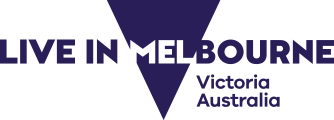You can take your career to the next level with a job in Melbourne. With so many diverse businesses to work for, many migrants have thrived in work and life in one of the most liveable cities in the world.
| Networking | A number of jobs in Victoria are not advertised, but instead are found through personal and professional networks. Join an industry association before you leave your home country and start building your own networks of people to help you connect with this hidden job market. Research the kinds of networks available in the area you plan to live. This could be volunteer groups, sports clubs, professional bodies and community groups. |
| Professional associations & groups | Key trade and professional industry organisations may be able to help you in your job search. You can also find more information about specific industry support organisations in the Victorian industries section. |
| Job-seeker websites | Use Australian job websites to research opportunities online and familiarise yourself with the Australian job market. This will help you get a feel for the salary and working conditions you can expect with your skills, qualifications and experience. |
| Recruitment companies | Make a list of the recruitment companies in Victoria that specialise in your field and contact them. The best way to find a recruitment agency is to search on the internet. Start by searching Australian job websites to see which recruiters are advertising positions in your field of work. |
| | LinkedIn is an important online networking tool, which will not only help you get connected to relevant industry networking groups but also match your profile with relevant jobs in the area. LinkedIn is used widely by Australian employers. |
| Other | Approach companies and exporters in your own country who have offices in Australia. Another option is to contact relevant companies and organisations in Australia directly. |
Quick tips – what to do before you arrive in Melbourne
1. Collate important documents
Before you leave for Melbourne, you should prepare copies of important documents that you may need for your job search. These include:
- school records, diplomas or degrees
- trade or professional certificates and licences (anything from school-level onwards)
- drivers licence, including an International Driver’s Permit
- all documents related to previous employers, including testimonials, written references, work records, etc.
2. Compile your employment history
Prepare copies of job descriptions and overviews from your previous jobs – they’re good records of your responsibilities, notable achievements and your performance. A quick overview of the company is also helpful. Also prepare a copy of any career or aptitude tests.
3. Ask for testimonials and references
Prepare your testimonials and referees in advance. Where possible, get written testimonials from employers, clients and suppliers, and have these translated into English if necessary. Australian employers value referee checks and these are usually done once they have narrowed down the final list of candidates.
Let your referees know the details of the jobs you’re applying for and the types of questions they’re likely to be asked for telephone references. Where possible, line up Australian referees.
Potential employees are likely to search for you on the online networking platform LinkedIn Make sure your profile includes written recommendations from past colleagues and managers.
4. Select an appropriate email address
Ensure you have an email address that can be easily identified that as yours. Include your common name in your email address – stick with the name people normally use to refer to you and avoid using nicknames to ensure you sound as professional as possible. Using your name as your email address rather than an alias is a professional expectation in most Australian organisations.
5. Complete your skills and qualification assessment
If you’re planning to migrate to Australia as a skilled migrant you will need to have your qualifications and skills assessed by the designated Australian assessing authority for your occupation as part of your nomination and visa applications.
For more information about having qualifications assessed, visit the Visa nomination & assessment page.
Upon arrival in Australia, you may need to have your skills and qualifications reviewed for employment purposes and undertake further training or bridging courses. VETASSESS is a service that can help you do this.
Useful websites
| Useful websites | |
| Overseas Qualifications Unit | The Victorian Overseas Qualifications Unit (OQU) provides qualified professionals, who are permanently living in Victoria, with an assessment of their qualifications (awarded by overseas educational institutions) to assist them to undertake work in Victoria. |
